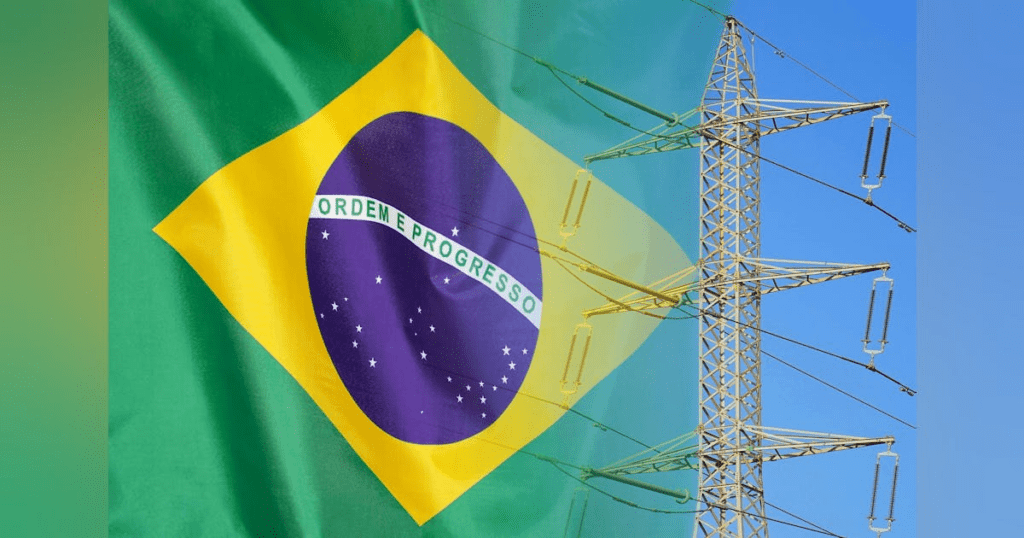The data center market in Brazil presents attractive opportunities for expansion and global investment. The growing demand for storage services, high-volume data processing and support for new technologies is driving the sector worldwide – and Brazil could stand out on the global stage with significant growth potential in the coming years.
Data shows that over 50% of data centers in Latin America are concentrated in the country, with the sector projected to grow by more than 30% until 2030. In addition, Brazil’s energy market is mature and regulated, with around 85% of the energy generated by renewable sources (whereas in the rest of the world this figure is less than 30% and with energy consumption being even lower), a relevant factor for the industry as it seeks to ensure sustainability in the infrastructure needed to keep up with the development of the digital economy.
Just as critical as the generation of this energy is its transmission. Brazil has a unique interconnected system that is large, robust and reliable – and because of this the energy can reach the end customer with an optimized cost structure. The United States, for example, has the capacity to generate the energy, but transmitting (moving) this energy has increasingly become a bottleneck. This type of infrastructure is not something that can be built overnight.
The difference between poison and medicine is the dose. We must be careful not to abuse the infrastructure that we have in Brazil. The number of large volume requests for access, sometimes unrealistic, can lead to exhaustion of connection capacity in the main substations of the national grid and even increase costs for the end customers, since a portion of this energy will not be consumed – yet this demand is ultimately considered by EPE and ONS (Energy Research Institute which is responsible for 5+ year planning and National Electric System Operator, respectively) and in some cases its infrastructure may even be developed (e.g. transmission lines auctions, reinforcement in substations of the basic network, etc.). Ultimately, this dynamic could impact the time-to-market of players that are capitalized and committed to undertake these high investments. A little more rationality (and less noise) would be welcomed for the market.
It is widely known that Brazil has an abundance of natural resources; however, their complementarity is less discussed. One example is that the greatest supply of water in the country occurs between November and April, while the availability of wind and biomass production are highest between May and October. Hydroelectric power plants with reservoirs can store water for several months, which allows for the generation of energy even during dry periods, ultimately complementing intermittent generation sources (mainly wind and solar). This characteristic is highly valued by other countries, which often seek this complementarity in the construction of reversible power plants, non-renewable sources or even batteries.
The vast availability of land in Brazil to build these projects also enables the expansion of infrastructure without the limitations that are common in other countries. In addition, Brazil has high-quality and reliable national and international fiber optic connectivity infrastructure, facilitating the exchange of data on a global scale.
Even though the Brazilian data center shows strong potential, progress also comes with challenges. To address this, we have seen the private and public sectors come together to implement initiatives that encourage the development of digital infrastructure. The Brazilian Industrial Development Agency points out that among the strategies to implement public policies to attract data centers to the country is the strengthening and consolidation of policies to reduce bureaucratic costs, programs aimed at qualifying the workforce and reforms to streamline and reduce the tax burden (especially for imported equipment when there is no alternative national industry). After all, the customer ultimately sees an all-in cost when deciding to deploy workloads in any given market. The country is competitive despite that – and we could have a more compelling offer on the global stage. Brazil is moving this direction.
The data center sector in Brazil is making great strides to support new technologies, such as Artificial Intelligence, Machine Learning, IoT (Internet of Things), cloud applications, Augmented Reality, among others that are already being applied in several industries. Calling these trends fads can be dangerous – they are slowly (for those in the know this perceived speed can vary greatly) becoming important work tools and leading to the creation of new products, potentially even industries or major restructuring gains in large non-tech sectors as we witnessed with the development of the internet. It is undeniable that these applications and the infrastructure required will increasingly be part of our future. Considering the underlying dynamics of the global data center state of play, the Brazilian market is promising.
Source link : http://www.bing.com/news/apiclick.aspx?ref=FexRss&aid=&tid=6712660f329848a1a566a73d5088da04&url=https%3A%2F%2Fwww.datacenterfrontier.com%2Fsponsored%2Farticle%2F55235736%2Fopportunities-and-challenges-of-the-data-center-market-in-brazil&c=8464785156668680572&mkt=en-us
Author :
Publish date : 2024-10-18 02:22:00
Copyright for syndicated content belongs to the linked Source.
